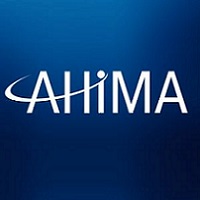 Journal of AHIMA outlines how AHIMA Foundation apprenticeship programs are helping healthcare organizations meet their goals
Journal of AHIMA outlines how AHIMA Foundation apprenticeship programs are helping healthcare organizations meet their goals
Participation in apprenticeship programs can help ensure health information management (HIM) departments meet the demands of the ever-changing healthcare industry by hiring qualified professionals, upskilling current employees, improving employee retention, and in some cases, increasing revenue at their organization.
In the article, Investing in Apprentices Pays Dividends for Employers, in the May issue of the Journal of AHIMA, the monthly journal of the American Health Information Management Association (AHIMA) (@AHIMAResources), Lisa A. Eramo writes about the important role AHIMA Foundation apprenticeships play in helping organizations meet their goals.
The AHIMA Foundation program has helped more than 100 employers fill staffing gaps and upskill current employees since the program began in 2015.
“It is essential that HIM professionals have the knowledge and skills needed to lead their organizations in improving the quality of patient care through the accessibility of accurate and trusted health data,” said AHIMA CEO Wylecia Wiggs Harris, PhD, CAE. “The AHIMA Foundation apprenticeship program provides an important avenue for healthcare organizations to identify and train employees to meet these goals.”
The AHIMA Foundation is one of 46 public-private partnerships awarded a grant through the US Department of Labor (DOL) to expand high-quality apprenticeship programs that combine education with on-the-job experience. The Foundation received $4.9 million of the total $175 million federal grant to fund the Managing the Talent Pipeline in Health Information Apprenticeship Program.
Implemented in locations across the country, the AHIMA Foundation apprenticeship program is seeing positive results. Examples highlighted in the article include:
- Opportunities to increase revenue through more compliant coding and billing as a result of employees who are better trained and certified.
- Ways the program can address challenges of recruiting and retaining qualified staff for organizations with an aging workforce population.
- How the apprenticeship program provides funding support in facilities, including those located in small communities, that have no other means to train or educate employees.
Also in the issue
Teaching Tune-Up
The career of an HIM professional has changed with technology and the demand for advanced education is increasing. Technology advances will continue to grow, and AHIMA is positioned to support HIM professionals with new curricula while preparing for the future state of the healthcare industry.
In the article, “Teaching Tune-Up,” Christi Lower, PhD, RHIA, FAHIMA, discusses the AHIMA initiative aimed at supporting the current HIM profession and preparing professionals to meet future challenges called HIM Reimagined (HIMR). The initiative led to the finalization of new HIM Curricula Competencies in late 2018, which aim to help HIM practitioners develop a skill set geared toward managing data and integrating business, clinical and information systems. This updated curriculum will open the door for HIM professionals to take on more advanced roles.
Read these articles and more in the May issue of the Journal of AHIMA or online at journal.ahima.org.
About AHIMA
The American Health Information Management Association (AHIMA) represents more than 103,000 health information professionals in the United States and around the world. AHIMA is committed to promoting and advocating for best practices in health information and to actively contributing to the development and advancement of health information professionals worldwide.
